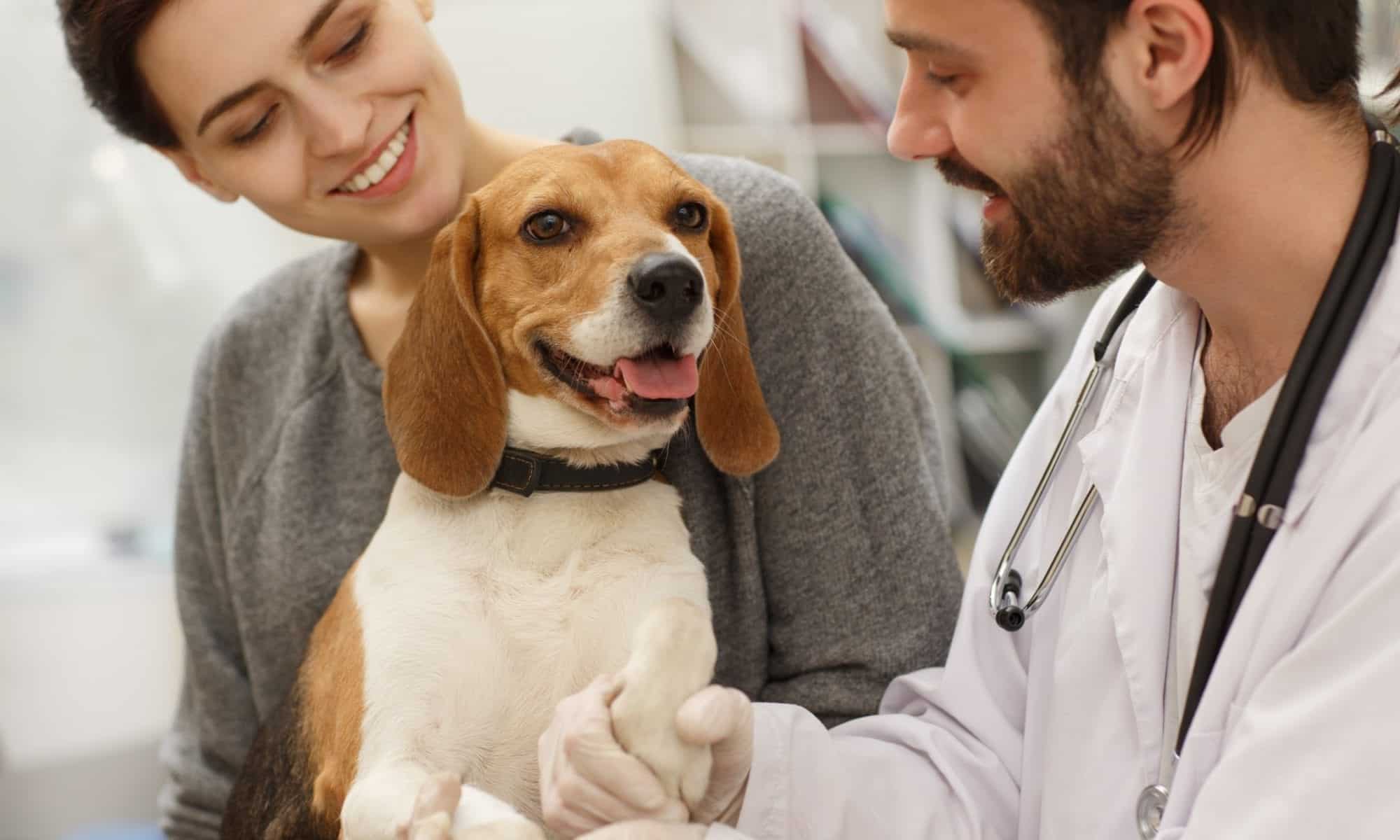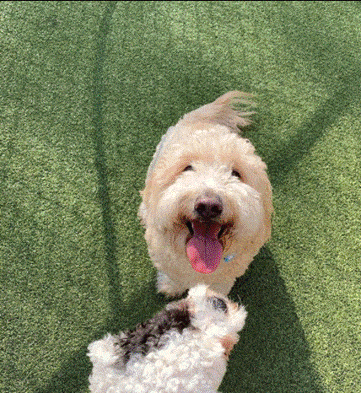How Often Should My Dog Go to the Vet?

Just as visiting our own primary care provider is important to the upkeep of our health, visiting the vet is a crucial part of keeping up with your pup’s health! But oftentimes, pet parents are unsure of how often they should be going to the vet. Whether you are a new doggy parent doing research or a current doggy parent wondering how often you should bring your pooch to the vet, do not fret! Here are a few helpful questions to ask yourself as you determine the appropriate amount of times you should bring your dog to the vet each year.
What is the age and general health of your puppy?
A dog’s age and overall health are two main factors that determine how often you should be visiting the vet. If you have a young puppy or an older senior dog, these age groups require more frequent visits to the vet.
Puppies under one-year-old need frequent vet visits
For young pups, they need to see the vet more often to ensure that they are healthy, properly vaccinated, and developing into a well-bodied adult dog. We recommend going to the vet once every month to follow a basic vaccination schedule. For a more in-depth explanation and the timeline for puppy vaccines, we recommend checking out the American Kennel Club’s Guide to First Year Vaccinations. It is also important for your dog to keep up with their vaccinations if you want to enroll your dog in training, daycare, or boarding at programs such as K9U.
For your reference, K9U requires the following minimum vaccinations:
- Distemper
- Parvo
- Rabies
- Bordatella
For puppy training, we require that the puppy has completed the first round of the Booster Vaccines.
We ask our clients to be sure to upload to their online profile, fax or email us current vaccination records for our files. We also strongly recommend getting the H3N8 vaccine and regular fecal test(every 3-6 months).
Puppy vet schedules can be a huge investment in both time and money. But, there are many positives to visiting the vet often while your pup is still a baby. Sticking to the vaccine schedule will protect your pup from getting sick, and by getting your pup used to the vet early on, your doggy will start building a positive relationship with the vet!
Healthy adult dogs (1-7 years old) need annual doggy wellness exams
Once your pup has reached adulthood, they only need to go to the vet once a year for their annual wellness exam. An annual wellness exam is when your vet checks your dog’s overall health. The vet will check the dog’s eyes and ears to make sure they are clear, listen to the heart and lungs, and check for other irregularities. Your pup would also be receiving vaccines to keep updated with their records. After the thorough wellness exam, the vet would then make appropriate suggestions for your dog’s nutrition, activity, medications, and dental care. They may even make suggestions to keep your dog more active through programs such as agility training.
Doing these annual wellness exams gives the vet a chance to track your dog’s overall development and growth over the years. If you have any concerns about your pet, this would be a great opportunity to discuss those concerns with your vet.
Why are these doggy annual wellness exams so important?
Booking these annual wellness exams is a key part of preventative care. By taking your dog for these routine wellness exams, you can catch the development of illnesses and/or abnormalities early on — which can be essential for a successful treatment. If you are nervous about the costs of these annual vet visits, it is important to keep in mind that these annual wellness exams will both keep your pet healthier longer and lower the chance of huge surgeries — saving you money in the long run.
There are even options like Care Credit that many pet parents use for vet visits. Some vet clinics even offer payment plans, so call your local vet clinic to see if they offer these financing plans.
Senior dogs (over 8 years old) need semi-annual vet check-ups
Because older dogs are more prone to diseases and health issues, we recommend that dogs in this age group see the vet approximately every six months. In addition to the wellness exam, your vet will recommend a variety of diagnostic tests to help assess your dog’s health and provide a baseline for when your dog does develop an illness. These diagnostic tests could include blood tests, fecal tests, radiographs, ultrasounds, and a blood pressure test.
As your dog gets older, we recommend that you visit the vet more frequently so that health changes can be caught more quickly, and illnesses can be treated in the preliminary steps before they get worse.
When should you go to the vet right away?
Ideally, you should be planning for either one or two visits to the vet a year, depending on the age of your dog. However, it is also important to plan for when emergencies arise. During these emergencies, recognizing signs can be imperative in saving your pooch’s life. Here is a guide to recognizing some emergency symptoms so you know to go to an animal emergency room right away.
The bottom line is that preventative dog healthcare at all ages can prolong your pup’s life.
You know your dog the best, so we always recommend our dog parents to trust their instincts! If you believe your furry child’s behavior has suddenly shifted, a vet visit is probably best. Vets are medical professionals and want to help. So do not ever feel worried about contacting them too often with your questions. Your vet wants your pup to feel and look the best, and they are there to answer all your questions!
If you’d like to support your dog’s health and happiness in other ways, check out K9U!
K9U Chicago offers services such as doggie daycare and day training camps — both of which you can register for here! You may also be interested in our personalized training and thorough dog socialization. We also help you address any particular behavioral challenges you want to address and provide you daily communication, pictures, and video for you to view the dog’s progress.



